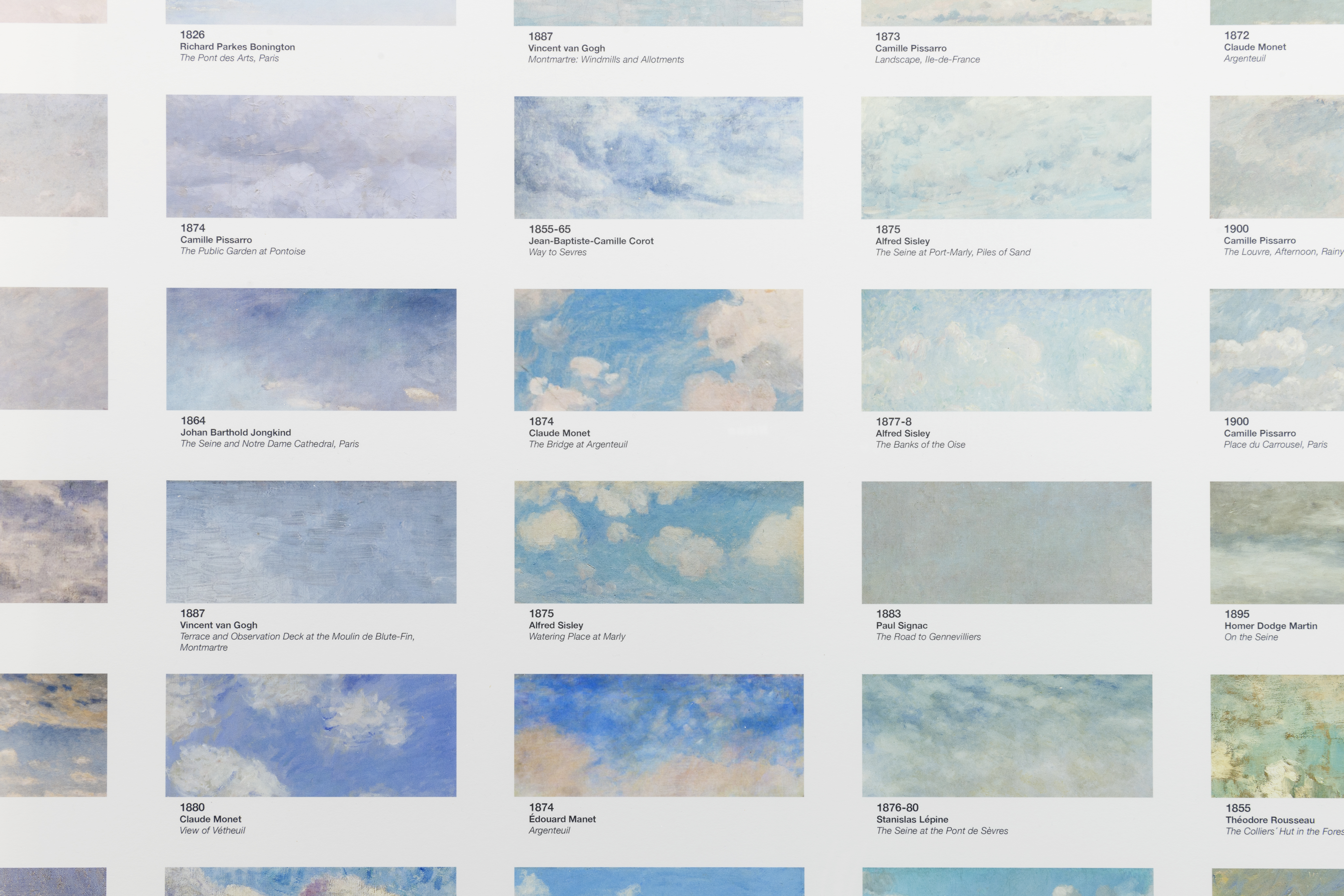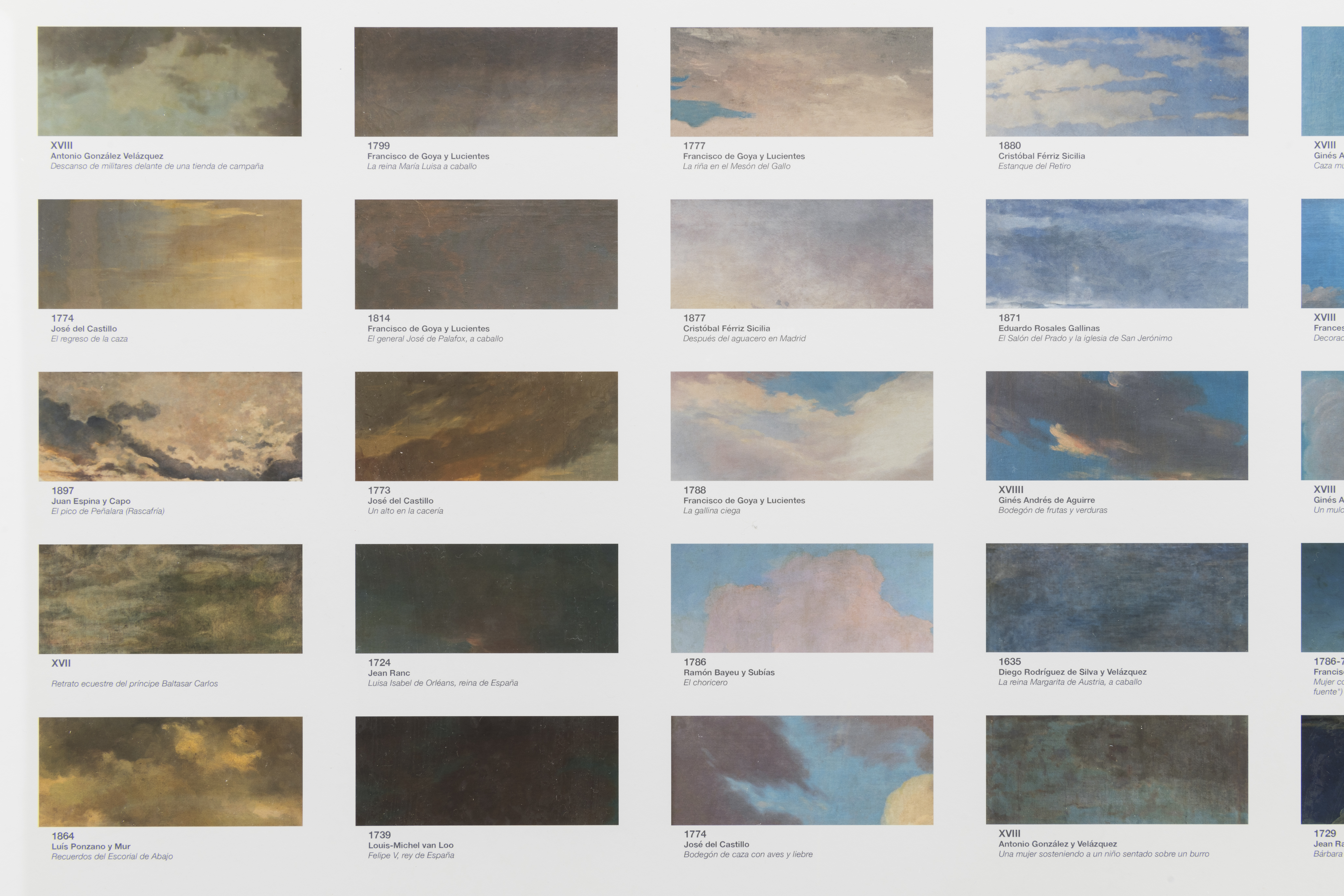Local Colour is a Foreign Invention
2024
Solo exhibition.
Sala Municipal «Las Francesas» – PHotoESPAÑA Festival 2024.
[May – July, 2024, Valladolid, Spain]
Collaboration with the National Museum of Romanticism, Madrid, Spain.
Leer en español →
The matter of painting was originally made from tiny particles from various places—soil, minerals—and living beings—animals, insects, or plants. These components, skillfully combined by artists, shaped real or imaginary landscapes, near or distant.
Geographic accents are portable manifestations of the landscapes that have marked our lives, influencing the construction of both our individual and collective identities.
During a long stay in Utrecht in 2018, I noticed how this new landscape affected my emotional state. My painting tutor once highlighted the improbability that artists like Giorgio Morandi and Piet Mondrian would share color palettes, each living in environments with such different climates and cultures. Each time I returned to Madrid, I was surprised to witness sunsets with colors so similar to those painted by Goya, creating a temporal leap of more than two hundred years.
The exhibition, held in a desacralized 17th century church, departs from Borges' phrase, "Local color is a foreign invention," igniting the possibility to determine the local color of a place. Before the advent of photography, painting was the primary medium used to record the color of things. Landscape painting emerged as an independent genre in the Netherlands in the 17th century, constituting a repository of countless human experiences in a given geography and climatic conditions. These representations are both an objective vision of the permanence of certain colors in a landscape over centuries and a subjective reflection of the unique way each artist sees and feels a place.
Thus, I began collecting images of landscape paintings from the websites of major art galleries worldwide. I focused on depictions of the sky: the element of a place that, unlike geographical features or architecture, is in constant change yet repeats cyclically. By configuring these images as if they were samples from a Pantone book, I organize them under political configurations of current countries and cities, highlighting the intersection between the political and the aesthetic in the construction of collective identities (series Local Colour is a Foreign Invention, 2020 – ongoing).
The tradition of landscape painting, fundamentally European, developed in parallel with the rise of nation-states. From the 17th to the 20th century, the depiction of landscapes in European and North American art contributed to the formation of national identities, shaping the perception of territories by their inhabitants and also by external observers.
For this exhibition, I selected a series of paintings from the collection of the Museo del Romanticismo in Madrid. Enlarged as giant photographs, they transport us to faraway places and times. From Egyptian deserts to European battlefields, I seek to look at these images, revealing the romantic and nationalist perspectives that characterized much of 19th-century art, through a contemporary lens. Altered in their color, these works prompt us to reflect on our personal connection with the landscape, history, and our relationship with what is different or unknown.
Credits:
General installation views and details of the exhibition El color local es un invento extranjero [Local Colour is a Foreign Invention], Sala Municipal «Las Francesas» – PHotoESPAÑA Festival 2024 (Valladolid, Spain, 2024). Images: Víctor Hugo Martín Caballero and Roberto Ruiz.
General installation views and details of the exhibition El color local es un invento extranjero [Local Colour is a Foreign Invention], Sala Municipal «Las Francesas» – PHotoESPAÑA Festival 2024 (Valladolid, Spain, 2024). Images: Víctor Hugo Martín Caballero and Roberto Ruiz.




